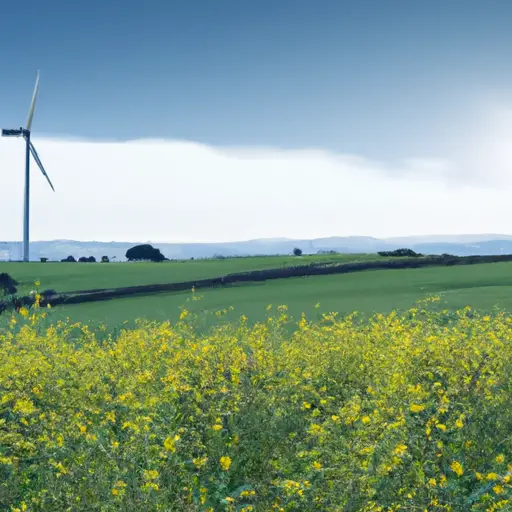Have you ever wondered if it’s legal to live off the grid here in the UK? You know, living in a self-sufficient, off-the-grid home, generating your own power, growing your own food, and disconnecting from the mainstream utilities. It sounds like a dream for those seeking a simpler, more sustainable lifestyle. Well, let’s dive into the topic and find out if living off the grid is actually legal in the UK!
Living off the grid means different things to different people, but generally, it involves being self-sufficient and independent from the traditional energy and water systems. In the UK, while this type of lifestyle is not explicitly illegal, there are certain regulations and laws that may impact your ability to completely disconnect from the grid. However, that doesn’t mean it’s impossible. In fact, many people in the UK do live off the grid to varying degrees.
So, what are the legal aspects to consider when living off the grid in the UK? Well, the main concerns usually revolve around planning permission, building regulations, and access to basic services like water and sewerage. Additionally, you’ll need to ensure that your off-grid lifestyle doesn’t breach any environmental regulations or laws. But don’t worry, there are ways to navigate these legalities and still live off the grid. In our upcoming article, we’ll delve deeper into these regulations and explore the options available for those who wish to embrace this alternative lifestyle. Stay tuned! Living off the grid refers to a lifestyle in which individuals choose to disconnect themselves from the traditional utility infrastructure and become self-sufficient in terms of energy, water, waste management, and food production. It is a way of life that embraces sustainability, environmental responsibility, and self-reliance. However, before embarking on this alternative lifestyle, it is crucial to understand the legal considerations and regulations that govern off grid living in the UK.
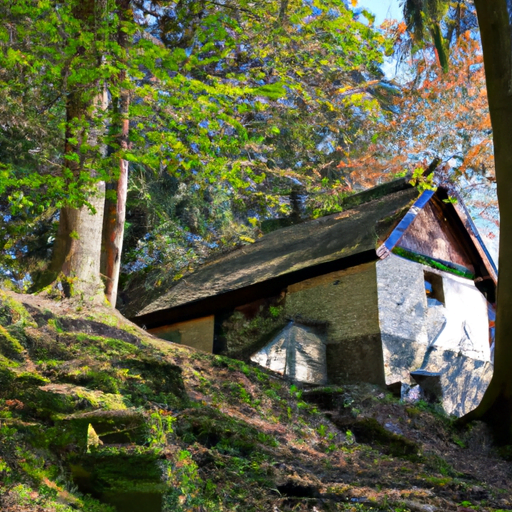
Understanding Off Grid Living
What is off grid living?
Off grid living involves living independently without relying on public utilities such as electricity, water, and sewage systems. Instead, individuals generate their own power, collect and treat water, manage waste, and produce their own food. This self-sufficiency provides individuals with the freedom to live in remote locations, reduce their environmental impact, and take control of their own resources.
Advantages of off grid living
Living off the grid offers numerous advantages. Firstly, it allows individuals to reduce their carbon footprint by generating renewable energy through alternative sources such as solar power, wind power, hydroelectric power, and bioenergy. This not only helps protect the environment but also saves money in the long run.
Secondly, off grid living promotes self-sustainability. By growing their own food using sustainable agricultural practices like permaculture and raising livestock, individuals can have a direct impact on their food supply and reduce their dependence on commercial farming methods.
Lastly, off grid living provides individuals with a sense of freedom and independence. It allows them to disconnect from the stresses and demands of modern society and embrace a simpler way of life.
Challenges of off grid living
Despite its many advantages, off grid living also comes with its fair share of challenges. The most significant challenge is the legal considerations and regulations that individuals must navigate. Additionally, off grid living requires individuals to invest in the necessary infrastructure, such as solar panels, wind turbines, and water collection systems, which can be costly upfront.
Furthermore, living off the grid often requires individuals to develop new skills and knowledge in areas such as construction, renewable energy systems, permaculture, and waste management. This learning curve can be time-consuming and challenging.
Legal Considerations for Off Grid Living in the UK
Regulations and permits
In the UK, living off the grid is generally legal, but there are specific regulations and permits that individuals must adhere to. The laws surrounding off grid living primarily relate to building codes, safety regulations, and environmental regulations. It is essential to research and understand these regulations to ensure compliance.
Zoning and planning permissions
Before establishing an off grid dwelling in the UK, individuals must obtain the necessary zoning and planning permissions. Local councils have specific requirements for building structures and often require individuals to submit detailed plans and obtain permits. It is crucial to consult with local authorities to ensure compliance with zoning and planning regulations.
Environmental regulations
Living off the grid often involves alternative waste management systems such as composting toilets and greywater systems. It is essential to comply with environmental regulations to prevent any harm to the environment and public health. These regulations may vary depending on the location and should be thoroughly researched and followed.
Building codes and safety regulations
When constructing an off grid dwelling, individuals must adhere to building codes and safety regulations to ensure the structure is safe and compliant. These regulations cover various aspects such as structural stability, electrical safety, and fire safety. Hiring professionals or seeking expert advice is advisable to ensure compliance with these regulations.
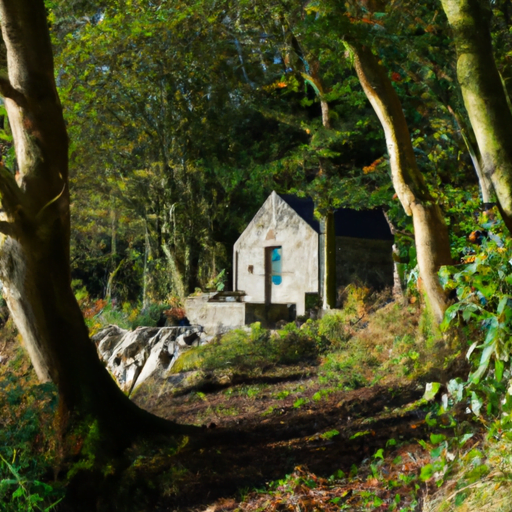
Off Grid Energy Sources
Solar power
Solar power is one of the most popular and widely used off grid energy sources. It involves installing solar panels to capture sunlight and convert it into electricity. This renewable energy source is abundant in the UK, making it a viable option for off grid living.
Wind power
Wind power harnesses the energy from the wind by using wind turbines to generate electricity. Although wind power requires suitable wind conditions, it can be an effective off grid energy source, particularly in coastal or windy areas.
Hydroelectric power
Hydroelectric power utilizes the energy from moving water, such as rivers or streams, to generate electricity. While this source may not be applicable to all off grid locations, it can be an effective and sustainable option for those near water bodies.
Bioenergy
Bioenergy involves using organic materials, such as wood or biomass, to generate heat or electricity. This renewable energy source is particularly useful for off grid dwellings that have access to wood or agricultural waste that can be converted into energy.
Water and Waste Management
Collecting and treating water
Off grid living often requires individuals to collect and treat their own water. This can involve harvesting rainwater, digging wells, or utilizing natural water sources. The collected water must then be properly treated and filtered to ensure it is safe for consumption.
Composting toilets
One aspect of off grid living is the use of composting toilets as an alternative to traditional flushing toilets. Composting toilets convert human waste into compost that can be used in gardens or agriculture. However, it is essential to comply with local regulations and ensure the proper management and disposal of waste.
Greywater systems
Greywater refers to wastewater generated from activities such as washing dishes, doing laundry, or taking showers. In off grid living, greywater systems collect and treat this water for reuse in irrigation or other non-potable purposes. Proper management and treatment are essential to prevent environmental contamination.
Waste disposal
Off grid living often involves strategies for proper waste disposal, such as recycling, composting, and minimizing waste generation. Proper waste management is not only essential for environmental protection but also for preventing public health risks.
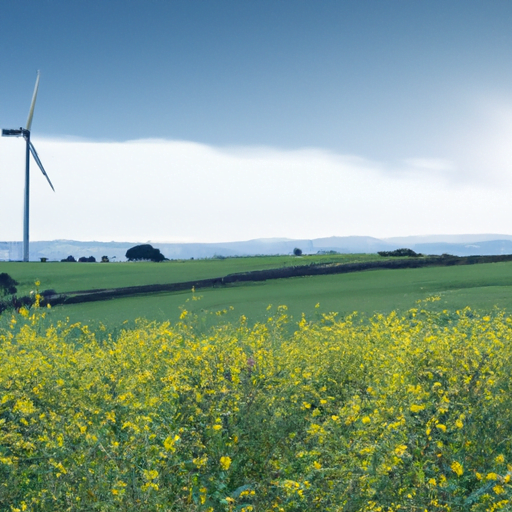
Food Production and Self-Sustainability
Permaculture and sustainable agriculture
One fundamental aspect of off grid living is the ability to grow one’s own food through sustainable agricultural practices such as permaculture. Permaculture focuses on designing ecosystems that are sustainable, self-sufficient, and regenerative. This approach minimizes the use of external inputs and maximizes resource efficiency.
Livestock and animal husbandry
Raising livestock, such as chickens, pigs, or goats, can provide individuals with a steady supply of meat, eggs, and dairy products. However, it is essential to consider the welfare and proper management of animals in an off grid setting.
Food preservation and storage
Living off the grid often requires individuals to learn techniques for food preservation and storage to ensure a year-round food supply. This may include canning, dehydrating, fermenting, or root cellaring. These methods help minimize waste and extend the shelf life of food.
Health and Safety Considerations
Medical emergencies
Living off grid often means being away from immediate access to medical facilities. Therefore, it is crucial to have a well-stocked first aid kit and knowledge of basic first aid and emergency response. Additionally, individuals may consider investing in medical training or obtaining emergency communication devices.
Fire safety
In off grid dwellings, fire safety is of utmost importance. Proper fire prevention measures, such as installing smoke detectors, designing safe heating systems, and implementing fire-safe practices, must be followed to ensure the safety of individuals and property.
Survival skills and first aid
Living off the grid requires individuals to acquire a range of survival skills, such as navigation, foraging, and self-defense. Additionally, having knowledge of first aid and emergency response can be vital in remote or isolated locations.
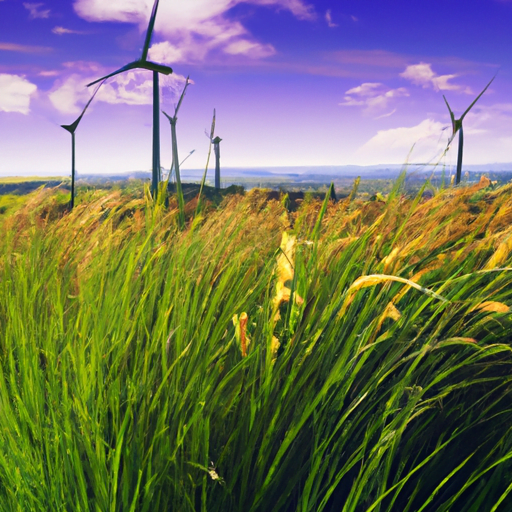
Financial Implications of Off Grid Living
Costs of setting up an off grid lifestyle
While living off the grid can save money in the long run by reducing utility bills, it also comes with significant upfront costs. The expenses include purchasing and installing alternative energy systems, building off grid structures, and equipping the property for self-sufficient living. Proper financial planning and budgeting are crucial to ensure a smooth transition to an off grid lifestyle.
Government incentives and grants
In the UK, there are various government incentives and grants available to support off grid living and the use of renewable energy sources. These incentives can help individuals offset the initial costs and make off grid living more affordable.
Financial planning and budgeting
Living off grid requires careful financial planning and budgeting. Individuals must consider ongoing expenses such as maintenance, repairs, and replacement of alternative energy systems, as well as the cost of food production and waste management. Proper budgeting is essential to maintain a sustainable off grid lifestyle.
Community and Off Grid Living
Joining or creating an off grid community
For those considering off grid living, joining or creating an off grid community can offer numerous benefits. Off grid communities provide shared resources, collaboration, support, and a sense of community. It is essential to research existing communities or connect with like-minded individuals to create a supportive network.
Shared resources and collaboration
Living off the grid often involves sharing resources within a community. This can include sharing tools, implementing collective systems for water and energy, and collaborating on food production. By sharing resources, individuals can reduce costs and increase self-sufficiency.
Social and psychological impact
Off grid living can have a significant social and psychological impact. It offers an opportunity to disconnect from the fast-paced modern world and embrace a simpler lifestyle. However, it is important to consider the potential isolation, reduced access to amenities, and the impact on relationships and social interactions when choosing to live off the grid.
Educating Yourself About Off Grid Living
Researching laws and regulations
Before embarking on an off grid lifestyle, it is essential to thoroughly research and understand the laws and regulations surrounding off grid living in your specific location. This includes zoning and planning permissions, environmental regulations, building codes, and safety regulations. Ignorance of the law is not an excuse, so take the time to educate yourself.
Training and acquiring necessary skills
Living off the grid often requires individuals to acquire new skills and knowledge in various areas such as construction, renewable energy systems, permaculture, and waste management. Seeking training and education in these fields can help individuals successfully navigate the challenges of off grid living.
Networking with other off grid enthusiasts
Connecting with other off grid enthusiasts can provide valuable support, information, and resources. Online forums, social media groups, and local meetups can help individuals find like-minded individuals who can share experiences, offer advice, and inspire one another on their off grid journey.
Conclusion
The legality of living off the grid in the UK depends on various factors and regulations. Before embarking on this alternative lifestyle, it is crucial to thoroughly understand and comply with local laws and regulations. This includes obtaining the necessary zoning and planning permissions, adhering to building codes and safety regulations, and complying with environmental regulations.
Living off the grid in the UK can be a fulfilling and sustainable way of life, promoting self-sufficiency, environmental responsibility, and reduced dependence on conventional resources. With proper planning, education, and compliance with legal considerations, individuals can enjoy the freedom, independence, and benefits that off grid living has to offer.

